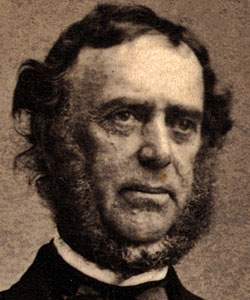Samuel Francis Du Pont (American National Biography)
Scholarship
In 1863 the Abraham Lincoln administration, in desperate political need of a victory, ordered Du Pont to attack Charleston. Du Pont's civilian superiors, unfamiliar with Charleston Harbor's hydrography, did not understand that the tactics of Port Royal or New Orleans could not be used in Charleston, where no room was available to maneuver. He doubted that a purely naval attack relying on monitors, which mounted only two guns and were offensively weak, could succeed against miles of fortifications and obstructions. On 7 April 1863, from 2:50 p.m. to 4:30 p.m., nine Federal ironclads with twenty-three guns attacked Charleston and were repulsed. The U.S. Navy could not pass Fort Sumter. Du Pont was relieved by Rear Admiral John A. Dahlgren on 6 July 1863. Du Pont was upset that Secretary of the Navy Gideon Welles, who ordered the attack, refused to share blame for the worst Federal naval defeat of the war. …Du Pont, who had always been extremely loyal to associates and subordinates (even if they were unpopular in Washington), was too independent to quietly accept Welles's version of Charleston, which placed all blame on the admiral. Politicians who supported the secretary of the navy would not defend Du Pont, and the public--who had hailed Du Pont as a hero after Port Royal--received a one-sided account of Charleston from the Navy Department. But among naval officers Du Pont remained highly respected.
Ralph Kirshner, "Du Pont, Samuel Francis," American National Biography Online, February 2000, http://www.anb.org/articles/04/04-00329.html.



